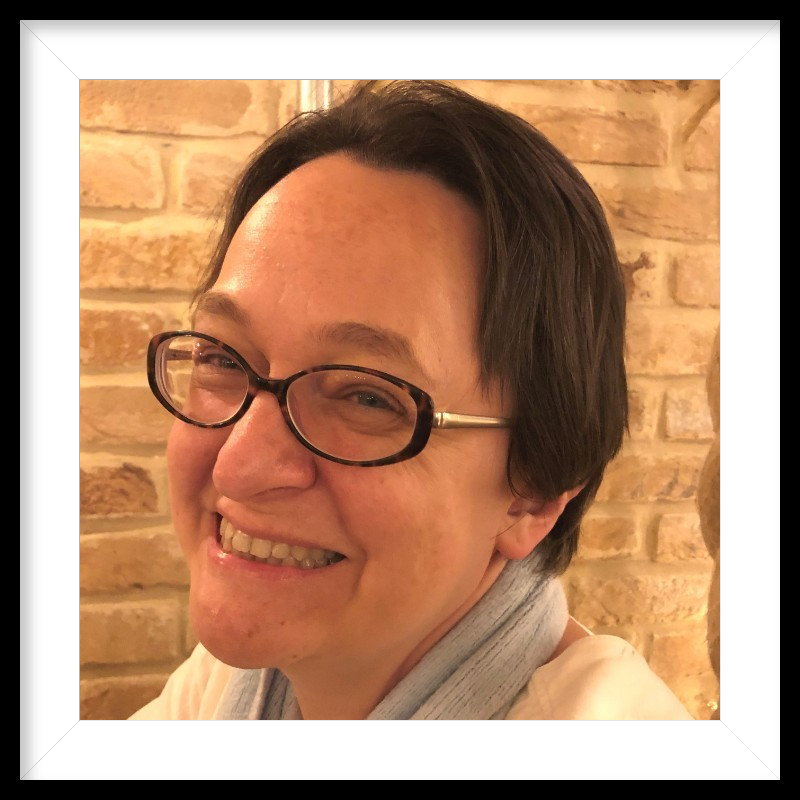A bit about us

Dr Cheryl Hawkins MBBS MRCPsych
Encourage Mental Health Training was founded by Dr Cheryl Hawkins, a psychiatrist who worked in the NHS for 12 years before becoming a mental health trainer.
I became a Christian in my first year of medical school. I started going to church with some friends I’d made in university. It was a lovely welcoming church not too big but not too small, we got to know most people there and built up some really good friendships that endure to this day. It was a caring church, a family church, an active nurturing church. I was part of their youth groups and Sunday school teaching.
When me and my then boyfriend decided we wanted to get married at the church everyone got involved. We were still students and didn’t have a lot of money to spend. But we had friends who did the flowers and decorated the church, friends who played the music, friends that picked up all the food from the supermarket and put it out at the reception venue, friends that took photos, friends that gave my family somewhere to stay. It was fantastic and the day wouldn’t have been half what it was without all of the love poured out to us by our church.
My mental health was a problem though. Throughout the preparations for the wedding my depression and anxiety had been getting steadily worse. Three months after we got married, I began to feel so low, I couldn’t leave the house without huge amounts of anxiety. The depression and anxiety took over and made me unable to work, socialise or even manage simple chores. It lasted for around 6 months then I gradually recovered, enough to finish my degree and start working as a doctor.
But where was my church in all this? Why was this wonderful caring community that loved me and my husband oblivious to the hard times we were going through?
There are several answers to this.
Firstly – we didn’t tell them. I felt ashamed, so we kept it a secret. Also, I didn’t really understand what was happening to me or how people could support me, so I didn’t reach out. When you are at the bottom of depression your mind tells you things like “this is just you, you’ve always been miserable, no one really likes you, you are just a burden.” So, it’s hard to ask for help or even talk about what you’re going through. Now I’m older and I’ve been through several episodes of depression I understand it better, know that I’ll recover, and know what sort of support I need, so now, sometimes, I ask for help.
Secondly the church wasn’t seeing it. This is the reason I feel we need to improve the way that churches can help people experiencing poor mental health. There had been signs that my mental health was deteriorating but these weren't picked up on. I don’t think it was anyone’s fault that no one noticed. I think everyone has such busy lives that it isn’t easy to spot if someone isn’t there. Also, we often think that someone else is in a better position to offer support. When we assume someone else is dealing with the problem and stop looking for it, it can be that no one sees it at all.
I think that is why I’ve always been drawn to Genesis 16 : 13 She gave this name to the LORD who spoke to her: “You are the God who sees me,” for she said, “I have now seen the One who sees me.” This was Hagar, she was a slave who was being mistreated and had run away. She was in the dessert, hopeless, alone, pregnant. But God came to her, He had seen her distress, and He told her what to do. He comforted her and gave her hope for the future.
We need to be better at seeing people going through a hard time in our churches if we are to have any chance to support them. This is why as well as talking to churches about mental health, we also want to create a community of church mental health champions; people trained to notice the subtle signs that someone's mental health may be declining and who know how to act on that and support them.
I believe that if we can look out for those in church who are having a hard time and struggling with their mental health and create a safe place where people feel able to talk about any mental health issues they are experiencing, we can make church a supportive place where people will want to be. We will reduce the suffering, stigma, and loneliness that people feel and prevent them from falling away from the church and their faith.

Genesis 16:13
Hagar gave this name to the LORD who spoke to her: "you are the God who sees me," for she said, "I have now seen the One who sees me."

Maurice Lawrence
Maurice Lawrence is a qualified social work practitioner who worked in partnership for a number of years with several mental health services in order to support children and adults who experienced a range of mental health issues. He also operated as a member of Derbyshire Healthcare NHS Foundation Trust, who shaped the strategies and services that are developed for the diverse range of patients needing mental health care.
He is a minister in a church in Derby and He has worked in collaboration, with a number of church denominations around the country and abroad to address issues of mental health and dementia. He worked with the Alzheimer’s Society and Mental Health First Aid, England in the capacity of consultant and learning instructor to raise awareness of mental health and to support organisations to create a culture that meet the needs of people experiencing mental health issues
Maurice is an accredited Mental Health First Aid (MHFA) Instructor with MHFA England. In this capacity He has delivered a range of MHFA courses online and face to face, to organisations across all sectors in order to ensure they are equipped to manage mental health issues in their field. He is extremely committed to educating as many people as possible in order to reduce the stigma surrounding mental health. Further, He is passionate in empowering people to developing effective strategies to maintain good mental wellbeing.
Maurice has helped to develop the teaching materials for Encourage mental health and delivers our training to churches.
Our statement of faith
We believe that God loves us and cares for every aspect of our lives. We believe that people are made in God’s image and are of great value to Him. He longs for relationship with His people, and our greatest need is to know and love Him. He put us into communities to encourage, teach, support and love one another, modelling the love He has for us.
Where there is hurt, illness, and brokenness, God longs to bring people to wholeness in Him, and one day He will make all things new.
As Christians, we long to care for those struggling with brokenness in this life, including those with mental health struggles. We aim to increase awareness of mental health issues in churches and faith settings, eliminate stigma and improve lives, to the glory of God.
Our mission, vision, and values are based on the Christian faith as understood and revealed through the Bible. What we believe is outlined by the Apostles’ Creed.
The Apostles' Creed
I believe in God, the Father almighty,
creator of heaven and earth.
I believe in Jesus Christ, His only Son, our Lord,
who was conceived by the Holy Spirit,
born of the Virgin Mary,
suffered under Pontius Pilate,
was crucified, died, and was buried;
He descended to the dead.
On the third day He rose again;
He ascended into heaven,
He is seated at the right hand of the Father,
and He will come to judge the living and the dead.
I believe in the Holy Spirit,
the holy catholic Church,
the communion of saints,
the forgiveness of sins,
the resurrection of the body,
and the life everlasting.
We are happy to work with people from all denominations of the Church and other faith communities.